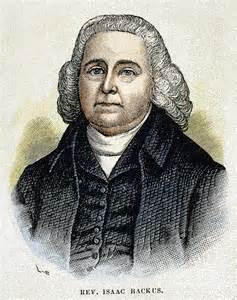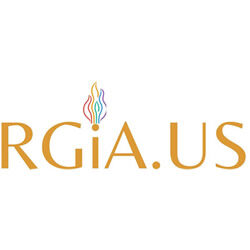• Revolutionary War Hero: “STAND FAST in the liberty wherewith Christ has made us free!” • William Prescott
The Declaration of Independence recorded the reasons:
“The history of the present King of Great Britain is a history of repeated injuries and usurpations, all having in direct object the establishment of an absolute Tyranny over these States.
To prove this, let Facts be submitted to a candid world …”
The Declaration goes on to list 27 abuses, most involve replacing the people’s representative government with tyrannical rule of King George III.
The list included the King’s acts of war:
“… declaring us out of his protection and waging war against us.
He has plundered our seas, ravaged our coasts, burnt our towns, and destroyed the lives of our people.
He is at this time transporting large armies of foreign mercenaries to complete the works of death … with … cruelty … scarcely paralleled in the most barbarous ages …
… He has constrained our fellow citizens taken captive on the high seas to bear arms against their country, to become the executioners of their friends.”
The Declaration described how the King stirred up agitators to commit terrorist acts:
“He has excited domestic insurrections amongst us, and has endeavored to bring on the inhabitants of our frontiers the merciless Indian savages, whose known rule of warfare is an undistinguished destruction of all ages, sexes, and conditions.”
Limiting the abusive power of a King was motivation for the founders who later wrote the U.S. Constitution — a document whose foundational purpose was to prevent one person, such as a President, from ruling through mandates and executive orders.
Colonists responded to the oppressive acts of the King.
In 1773, the Boston Tea Party occurred, with colonists throwing 342 chests of British East India tea overboard.
The British responded by passing the Boston Port Bill to blockade the harbor and starve citizens into submission.
On June 1, 1774. in the neighboring colony of Virginia observed a Day of Fasting for the citizens of Boston.
Thomas Jefferson had drafted the Resolution, with the support of Robert Carter Nicholas, Patrick Henry, Richard Henry Lee and George Mason.
In August of 1774, Colonel William Prescott led the men of Pepperell, Massachusetts, in delivering loads of rye to inhabitants of Boston, telling them:
“We heartily sympathize with you, and are always ready to do all in our power for your support, comfort and relief; knowing that Providence has placed you where you must stand the first shock.
We consider we are all embarked in (the same ship) and must sink or swim together …”
Prescott continued:
“If we submit to these regulations, all is gone.
Our forefathers passed the vast Atlantic, spent their blood and treasure, that they might enjoy their liberties, both civil and religious, and transmit them to their posterity …
Now if we should give them up, can our children rise up and call us blessed?”
These sentiments were echoed by Franklin Roosevelt on May 27, 1941:
“Nazis are as ruthless as the Communists in the denial of God …
Will our children, too, wander off, goose-stepping in search of new gods? …
The whole world is divided between human slavery and human freedom – between pagan brutality and the Christian ideal. We choose human freedom – which is the Christian ideal.”
Similarly, Reagan stated in 1961:
“We want no further encroachment on these individual liberties and freedoms …
Federal programs … will invade every area of freedom … until, one day … you and I are going to spend our sunset years telling our children and our children’s children, what it once was like in America when men were free.”
In 1775, before George Washington was chosen as Commander-in-Chief, General Israel Putnam commanded the 2,400 men at the Battle of Bunker Hill.
Colonel William Prescott was in charge of the 1,200 men holding the critical center redoubt.
When a stray musket ball from a British gun killed an American soldier, men began to run away.
In the face of enemy fire, Colonel William Prescott stood fast.
He climbed on the wall of the fortification, stood upright, walked back and forth, and rallied his men to have courage.
When British General Thomas Gage saw Prescott through his telescope, he asked a local loyalist if Prescott had enough courage to fight.
The loyalist Abijah Willard replied:
“Prescott is an old soldier, he will fight as long as a drop of blood is in his veins … Prescott will fight you to the gates of hell.”
Samuel Swett wrote in his History of Bunker Hill, that as the 3,000 British soldiers advanced:
“The American marksmen are with difficulty restrained from firing. General Israel Putnam rode through the line, and ordered that no one should fire till they arrived within eight rods …
Powder was scarce and must not be wasted. They should ‘not fire at the enemy till they saw the whites of their eyes …’ The same orders were reiterated by Prescott at the redoubt.”
Historian George Bancroft wrote that at the redoubt in the center of battle:
“No one appeared to have any command but Colonel Prescott … His bravery could never be enough acknowledged and applauded.”
After repealing the British advance twice, the Americans ran out of ammunition.
As the British advanced, Colonel Prescott ordered a retreat from the redoubt, himself being one of the last ones to leave.
While the Americans suffered 450 casualties, British General William Howe lost nearly fifty percent of his troops, with over 1,000 killed or wounded.
Among the Americans killed was the courageous Dr. Joseph Warren, President of the Massachusetts Provincial Congress, who, a few months earlier, sent Paul Revere and William Dawes on their midnight ride to warn Lexington and Concord that the British were coming to take their guns.
In 1777, Prescott fought in the Battle of Saratoga, being depicted in John Trumbull’s painting of the Surrender of General Burgoyne which is in the U.S. Capitol Rotunda.
As stated earlier, Col. William Prescott admonished:
“Our forefathers … spent their blood and treasure, that they might enjoy their liberties, both civil and religious, and transmit them to their posterity …
Now if we should give them up, can our children rise up and call us blessed?”
Their grandson, William Hickling Prescott, became a world renown scholar of Spanish history, and was a key supporter of The Perkins School for the Blind.
In a remarkable act of reconciliation, William Hickling Prescott married the granddaughter of British Captain John Linzee, whose ship HMS Falcon had fired upon Bunker Hill.
He was held in such esteem that he dined in the White House with Presidents John Quincy Adams, James K. Polk and Zachary Taylor.
Prescott Street, near Harvard Yard in Cambridge, was named for him, as was the city of Prescott, Arizona.
The great-great-great-grandson of Revolutionary patriot William Prescott was William Linzee Prescott, who fought alongside the British during World War II.
A paratrooper in the 82nd Airborne, Linzee jumped into Normandy during the D-Day invasion, was captured by the Nazis and spent 10 months as a prisoner. As an artist, he recorded his experiences in paintings.

A contemporary of William Prescott’s was Baptist minister Isaac Backus, a founder of Brown University and a delegate to the Massachusetts Convention which ratified the U.S. Constitution.
Isaac Backus addressed the Massachusetts Assembly in 1775:
“Is not all America now appealing to Heaven against the injustice of being taxed …
We are persuaded that an entire freedom from being taxed by civil rulers to religious worship is not mere favor from any men in the world but a right and property granted us by God, who commands us to STAND FAST in it.”
Rev. Jacob Duché addressed the First Battalion of the City of Philadelphia, July 7, 1775, dedicating his sermon to General George Washington:
“‘STAND FAST’ by a strong faith and dependence upon Jesus Christ, the great Captain of your salvation. Enlist under the banner of His cross …
‘STAND FAST’ … three millions of people …
‘STAND FAST’ by an undaunted courage … that will prove you to be good Christians, as well as soldiers, a firm invincible fortitude of soul, founded upon religion, and t he glorious hope of a better world;
a courage, that will enable you not only to withstand … against the principalities and powers of darkness …
… Surely ‘the God of Jacob was their refuge’ … Be prepared … for the worst …
Let us … ‘STAND FAST’ as the guardians of liberty.”
President Andrew Jackson stated in his Farewell Address, March 4, 1837:
“Providence has showered on this favored land blessings without number, and has chosen you as the guardians of freedom, to preserve it for the benefit of the human race.”
The U.S House and Senate passed Resolution 83, November 16, 2001:
“Congress shall assemble in the rotunda … to humbly seek the blessings of Providence for forgiveness, reconciliation, unity, and charity for all people of the United States,
thereby assisting the Nation to realize its potential as … the champion of hope … the vindicator of the defenseless; and … the guardian of freedom.”
Congressman Tom DeLay addressed Westminster College, April 3, 2002:
“Terrorists will always target America because we are the leading guardian of freedom.”
Franklin Roosevelt told Pan American Scientific Congress, May 10, 1940:
“Americans might have to become the guardian of Western culture, the protector of Christian civilization.”
In 1920, President Calvin Coolidge stated of the Declaration:
“Rights of citizens ought to be protected with every power and resource of the state …
A government that does any less is false to the teachings of that great document – false to the name American.”
Standing against the enemy, Col. William Prescott stated:
“Let us all be of one heart, and STAND FAST in the liberty wherewith Christ has made us free; and may he, of his infinite mercy grant us deliverance out of all our troubles.”
—
Follow on:
Schedule Bill Federer for informative interviews & captivating PowerPoint presentations: 314-502-8924 [email protected]
American Minute is a registered trademark of William J. Federer. Permission is granted to forward, reprint, or duplicate, with acknowledgment.












































